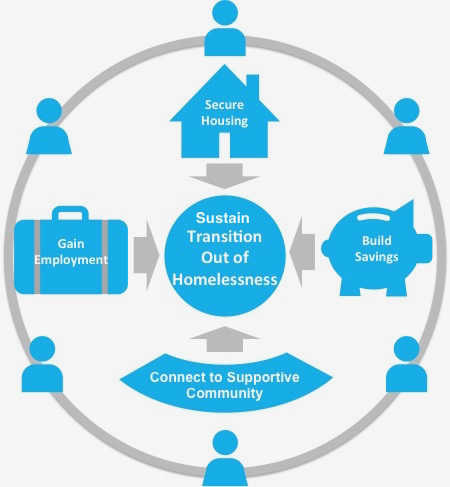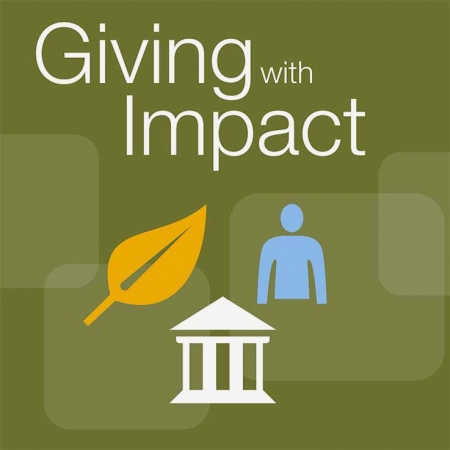Donor-advised funds have emerged as a powerful tool for individuals and corporations to engage in philanthropy and support their communities. These funds allow donors to make a charitable contribution, receive an immediate tax deduction, and then recommend grants to their favorite nonprofit organizations over time. This flexibility and control over charitable giving have made donor-advised funds increasingly popular in recent years, with their total assets reaching billions of dollars.
One of the key advantages of donor-advised funds is their ability to empower communities through targeted and sustainable support. Donors can choose to support a wide range of causes, from education and healthcare to environmental conservation and social justice. By connecting donors with organizations working on the ground, these funds foster collaboration, innovation, and cross-sectoral partnerships that drive positive change.
Beyond financial support, donor-advised funds also play a crucial role in fostering greater civic engagement. They encourage donors to become more actively involved in their communities, connecting them with meaningful causes and allowing them to see the impact of their philanthropic investments. This engagement often goes beyond writing a check, as donors can use their expertise, skills, and networks to further support the organizations they care about.
However, it is important to recognize that donor-advised funds also pose challenges and questions, such as accountability, transparency, and the potential for fund holders to distribute grants to controversial organizations. By critically examining these issues and exploring best practices, we can ensure that donor-advised funds continue to be a force for good, empowering communities and promoting civil society empowerment.

The Power of Donor-Advised Funds
Donor-Advised Funds (DAFs) are revolutionizing the way individuals and organizations give back to their communities. These funds provide a powerful tool for donors to easily and efficiently support causes they are passionate about.
One of the key advantages of DAFs is their flexibility. Donors have the ability to contribute to the fund at any time and can easily recommend grants to support specific projects or organizations. This flexibility allows donors to respond quickly to emerging needs or take advantage of strategic opportunities for impact.
Furthermore, DAFs provide a centralized platform for donors to manage and track their philanthropic activities. Donors can access detailed information about their fund’s performance, review grant summaries, and receive regular updates on the impact of their giving. This transparency and accountability ensure that donors can make informed decisions about where their funds are being deployed.
Additionally, DAFs offer the opportunity for donors to engage their family members in philanthropy. By involving the next generation in the process of recommending grants and understanding the impact of their giving, donors can instill a lifelong commitment to charitable giving.
The power of DAFs extends beyond individual donors. Many organizations, including foundations and corporations, establish DAFs to streamline their philanthropic efforts. By consolidating their giving into a single fund, these entities can leverage their resources and maximize their impact on the communities they serve.
In conclusion, Donor-Advised Funds are revolutionizing the way individuals and organizations engage in philanthropy. The flexibility, transparency, and the opportunity to involve multiple generations make DAFs a powerful tool for empowering communities and driving positive change.
Supporting Grassroots Initiatives
Grassroots initiatives play a crucial role in empowering communities and driving positive change. Donor-advised funds (DAFs) provide an effective means of supporting these initiatives and helping them thrive.
Empowering Communities: DAFs offer individuals and organizations the opportunity to support grassroots initiatives that align with their values and vision for change. By providing financial resources, DAFs allow grassroots organizations to focus on implementing solutions to local challenges and driving community empowerment.
Flexibility in Funding:
DAFs provide flexibility in funding by allowing donors to contribute to a pool of funds that can be used to support multiple grassroots initiatives simultaneously. This flexibility allows donors to respond to emerging needs and provide ongoing support to initiatives that demonstrate positive impact.
Building Sustainable Networks:
Supporting grassroots initiatives through DAFs helps build sustainable networks within communities. By providing funding and resources, DAFs enable grassroots organizations to collaborate, share knowledge, and enhance their collective impact. This collaboration strengthens grassroots movements and enhances their ability to address complex social challenges.
Measuring and Evaluating Impact:
DAFs can play a crucial role in measuring and evaluating the impact of grassroots initiatives. By tracking the progress and outcomes of funded projects, DAFs provide valuable insights into the effectiveness of these initiatives. This information can guide future funding decisions, ensuring that resources are directed towards initiatives that have a proven track record of success.
Conclusion
Supporting grassroots initiatives through DAFs is a powerful way to empower communities and drive positive change. By providing flexible funding, building sustainable networks, and measuring impact, DAFs enable grassroots organizations to make a real difference in their communities.
Fostering Collaboration and Partnership
Donor-advised funds play a crucial role in fostering collaboration and partnership within the civil society sector. These funds provide a platform where individuals, families, and corporations can pool their resources and expertise to support causes they are passionate about. By bringing together diverse stakeholders with a common goal, donor-advised funds encourage collaboration and the sharing of knowledge and experiences.
Benefits of collaboration: Collaboration allows organizations to leverage their collective strengths and resources for greater impact. Through partnerships, nonprofits can share best practices, access new funding streams, and expand their reach to underserved communities. Donor-advised funds facilitate these collaborations by providing a centralized platform for organizations to connect and collaborate.
Partnerships with corporations: Donor-advised funds also enable partnerships between nonprofits and corporations. Many corporations have established their own donor-advised funds, which allow employees and customers to contribute to charitable causes. These partnerships can provide nonprofits with additional funding and access to corporate expertise and resources, while also allowing corporations to demonstrate their commitment to social responsibility.
Building networks: Donor-advised funds can also serve as a networking tool, connecting nonprofits, philanthropists, and other stakeholders within the civil society sector. These networks provide opportunities for collaboration, joint projects, and knowledge sharing. By fostering partnerships and networks, donor-advised funds contribute to a more cohesive and effective civil society ecosystem.
Collective impact: The collaborative nature of donor-advised funds contributes to the concept of collective impact, where organizations work together to address complex social issues. By pooling resources, sharing strategies, and aligning efforts, donor-advised funds can help achieve greater social change and empower communities.
In conclusion, donor-advised funds have a significant role to play in fostering collaboration and partnership within the civil society sector. By bringing together diverse stakeholders, facilitating partnerships, and building networks, these funds enhance the collective impact of philanthropic efforts and empower communities to address social challenges more effectively.
Addressing Societal Challenges
Donor-advised funds play a crucial role in addressing various societal challenges that communities face. These funds provide a platform for individuals and organizations to contribute resources towards initiatives that aim to tackle social, economic, and environmental issues.
A donor-advised fund allows donors to allocate their contributions towards specific causes or initiatives that align with their values and interests. By doing so, they can directly address the societal challenges that they feel most passionate about. This targeted approach ensures that resources are allocated efficiently and effectively to make a real impact.
Empowering Grassroots Organizations
One of the significant benefits of donor-advised funds is their ability to empower grassroots organizations. These smaller, community-based groups often struggle to access the funding and support they need to address local challenges effectively. Donor-advised funds provide a way for individuals and organizations to support these grassroots initiatives directly.
Through donor-advised funds, donors can contribute to organizations working at the community level, providing financial resources to implement innovative solutions to societal challenges. By empowering grassroots organizations, these funds strengthen the overall fabric of civil society and enable local communities to address their unique challenges in a more sustainable and impactful way.

Promoting Collaboration and Networking
Donor-advised funds also facilitate collaboration and networking among different stakeholders involved in addressing societal challenges. These funds bring together donors, nonprofits, and other organizations working towards similar goals, creating an opportunity for shared learning and collective action.
Through the networking opportunities provided by donor-advised funds, organizations can share best practices, leverage resources, and collaborate on projects that have a greater collective impact. This collaborative approach ensures that efforts to address societal challenges are coordinated and that different stakeholders can learn from each other’s successes and failures.
Encouraging Social Innovation
Social innovation plays a crucial role in empowering communities and driving positive change. Donor-advised funds can help in encouraging and supporting social innovation initiatives.
One way in which donor-advised funds can encourage social innovation is by providing financial support to innovative projects and organizations. Donors can contribute to funds that specifically focus on supporting social innovation, enabling these funds to provide grants and funding to innovative initiatives. This financial support is essential for social innovators to implement their ideas and bring about meaningful change in communities.
Donor-advised funds can also support social innovation through their expertise and networks. Many funds have dedicated staff members who are knowledgeable about the social sector and can provide guidance and advice to social innovators. These staff members can help connect social innovators with relevant resources, organizations, and experts in their field. This network and expertise can be invaluable for social innovators who may be initiating their projects and need support and guidance.
Furthermore, donor-advised funds can play a role in creating partnerships and collaborations between social innovators and other stakeholders. By bringing together different actors such as nonprofits, businesses, government entities, and community organizations, donor-advised funds can foster collaboration and facilitate the exchange of ideas, resources, and expertise. These partnerships can enhance the impact and sustainability of social innovation projects, as they bring together diverse perspectives and resources.
Additionally, donor-advised funds can promote social innovation by raising awareness about innovative initiatives and the importance of social change. Through their communication channels, funds can highlight successful social innovation projects, share best practices, and inspire others to get involved. This can create a ripple effect, encouraging more individuals and organizations to engage in social innovation and contribute to positive community empowerment.
In summary, donor-advised funds can encourage social innovation by providing financial support, expertise, networks, and promoting collaboration and awareness. By doing so, donor-advised funds can empower communities and drive positive change in society.
Advancing Education and Research
Donor-advised funds have a significant impact on advancing education and research. Through these funds, individuals can contribute specifically to educational and research institutions that align with their values and interests. This allows donors to have a direct and meaningful impact on the educational landscape by supporting initiatives that prioritize innovation, excellence, and accessibility.
Donor-advised funds provide a vital source of funding for scholarships, endowments, and research grants. By supporting educational institutions, these funds play a crucial role in expanding access to education and ensuring that deserving students have the opportunity to pursue their academic goals. This, in turn, empowers individuals, families, and communities by providing them with the resources they need to succeed.
Additionally, these funds support research initiatives that drive innovation and knowledge creation. By providing financial support to research institutions, donor-advised funds facilitate the exploration of new ideas and the development of breakthrough technologies. This not only benefits society as a whole but also empowers researchers and scientists to push the boundaries of knowledge and make meaningful contributions to their respective fields.
In summary, donor-advised funds play a crucial role in advancing education and research. By providing financial support to educational institutions and research initiatives, these funds empower individuals, families, and communities to pursue their academic goals, expand access to education, and drive innovation and knowledge creation.
Strengthening Nonprofit Organizations
Donor-advised funds play a vital role in strengthening nonprofit organizations. Through these funds, donors have the opportunity to support and empower various nonprofit organizations in their communities. This support can come in the form of financial donations, as well as other resources and expertise that donors can provide.

One way in which donor-advised funds strengthen nonprofit organizations is by providing them with a stable and consistent source of funding. Nonprofits often rely on donations to fund their operations and initiatives, and donor-advised funds can provide a reliable stream of financial support. This stability allows nonprofits to plan and execute long-term projects, knowing that they have a steady source of funding.
Additionally, donor-advised funds can help nonprofit organizations by offering guidance and expertise. Donors who contribute to these funds often have a wealth of knowledge and experience in a variety of fields. They can share their expertise with nonprofit organizations, helping them to develop strategies, improve operations, and maximize their impact.
Furthermore, donor-advised funds can facilitate collaboration and networking among nonprofit organizations. Donors who contribute to these funds may have connections and relationships with other organizations in the community. By supporting multiple nonprofit organizations through their donor-advised fund, donors can promote collaboration and networking, allowing organizations to share resources and work together towards common goals.
Overall, donor-advised funds serve as a valuable tool for strengthening nonprofit organizations. Through financial contributions, guidance, and networking opportunities, these funds empower nonprofits to make a greater impact in their communities and achieve their mission more effectively.
Promoting Sustainable Development
Sustainable development is a vital goal for communities around the world. It involves meeting the needs of the present generation without compromising the ability of future generations to meet their own needs. Donor-advised funds play a crucial role in promoting sustainable development by providing financial support to initiatives that focus on long-term social, economic, and environmental impact.
One way donor-advised funds promote sustainable development is by supporting projects that prioritize renewable energy sources. By investing in clean energy infrastructure, these funds help reduce carbon emissions and mitigate climate change. They also contribute to the development of sustainable energy systems that can provide affordable and reliable power to communities, while minimizing environmental harm.

Another area where donor-advised funds contribute to sustainable development is through their support of initiatives that promote sustainable agriculture. These funds provide grants to projects aimed at improving farming practices, promoting organic and regenerative agriculture, and reducing the use of harmful chemicals. By supporting sustainable agriculture, donor-advised funds help protect the environment, ensure food security for communities, and enhance the livelihoods of farmers.
In addition, donor-advised funds play a role in promoting sustainable development by investing in projects that focus on biodiversity conservation. These funds support initiatives aimed at preserving and restoring natural habitats, protecting endangered species, and promoting sustainable wildlife management. By preserving biodiversity, donor-advised funds contribute to the overall health and resilience of ecosystems, which in turn benefits communities by providing essential services such as clean water, air, and natural resources.
Furthermore, donor-advised funds can promote sustainable development by supporting initiatives that focus on education and capacity-building. These funds provide grants to projects that aim to improve access to quality education, promote vocational training, and enhance the skills and knowledge of individuals and communities. By investing in education and capacity-building, donor-advised funds empower communities to participate actively in sustainable development processes and build resilient and inclusive societies.
In conclusion, donor-advised funds play a crucial role in promoting sustainable development by supporting projects and initiatives that focus on renewable energy, sustainable agriculture, biodiversity conservation, and education. Through their financial contributions, these funds help create a better and more sustainable future for communities worldwide.
Enhancing Philanthropic Culture
Donor-advised funds play a crucial role in enhancing philanthropic culture within communities. These funds provide individuals and organizations with a platform to engage in meaningful giving and contribute to the betterment of society. By establishing a donor-advised fund, individuals can take an active role in identifying and supporting the causes they are passionate about.
One of the key ways donor-advised funds enhance philanthropic culture is by promoting a sense of ownership and responsibility. When individuals are given the opportunity to have a say in how their charitable funds are allocated, they are more likely to feel a sense of pride and connection to the causes they support. This sense of ownership cultivates a culture of philanthropy within the community, encouraging others to get involved and make a difference.
Donor-advised funds also provide a platform for collaboration and partnership within the philanthropic sector. By pooling resources through a donor-advised fund, individuals and organizations can combine their efforts to achieve greater impact. This collaborative approach fosters a sense of community and encourages the sharing of knowledge, expertise, and best practices.

Furthermore, donor-advised funds have the potential to democratize philanthropy by making it accessible to a wider audience. Traditionally, philanthropy has been seen as the domain of wealthy individuals and foundations. However, donor-advised funds allow individuals of all income levels to contribute to meaningful causes. This inclusivity not only empowers individuals to make a difference but also strengthens the overall philanthropic culture within a community.
In conclusion, donor-advised funds have a transformative effect on philanthropic culture. They promote ownership and responsibility, encourage collaboration and partnership, and democratize philanthropy. By empowering individuals and organizations to engage in meaningful giving, donor-advised funds enhance the overall philanthropic culture within communities.
Building Resilient Communities
Investing in Infrastructure
Building resilient communities starts with investing in infrastructure. By improving physical infrastructure such as roads, bridges, and public transportation systems, communities can better withstand and recover from natural disasters and other emergencies. Additionally, investing in digital infrastructure, such as high-speed internet access, can help communities adapt to the demands of a rapidly changing world and ensure that all members have access to vital information and resources.
Creating Support Networks
Resilient communities are built on strong support networks. This includes fostering relationships between community members and organizations that provide essential services in times of need. By creating partnerships with local non-profits, government agencies, and community leaders, communities can ensure that there is a robust network of support in place to provide assistance during crises. This could include access to housing, food, healthcare, and emotional support.
Educating and Empowering Citizens
In order to build resilient communities, it is crucial to educate and empower citizens. This can be achieved through initiatives that promote disaster preparedness, emergency response training, and community engagement. By equipping individuals with the knowledge and skills they need to take action during emergencies, communities can become more self-reliant and better able to handle challenges.
Promoting Economic Stability
Economic stability plays a vital role in community resilience. By promoting job growth, entrepreneurship, and financial literacy, communities can become more economically resilient and better equipped to withstand economic downturns. Providing resources and support for small businesses and encouraging local economic development can help create a more resilient and sustainable community.
Building a Culture of Resilience
Lastly, building resilient communities requires a shift in mindset. This involves fostering a culture of resilience where community members understand the importance of preparing for and responding to crises. By promoting a sense of collective responsibility and encouraging individuals to take proactive measures to protect themselves and their community, communities can become more resilient in the face of challenges.
In conclusion, building resilient communities involves investing in infrastructure, creating support networks, educating and empowering citizens, promoting economic stability, and fostering a culture of resilience. Through these efforts, communities can become better prepared to face and overcome challenges, ensuring a safer and more sustainable future for all.





